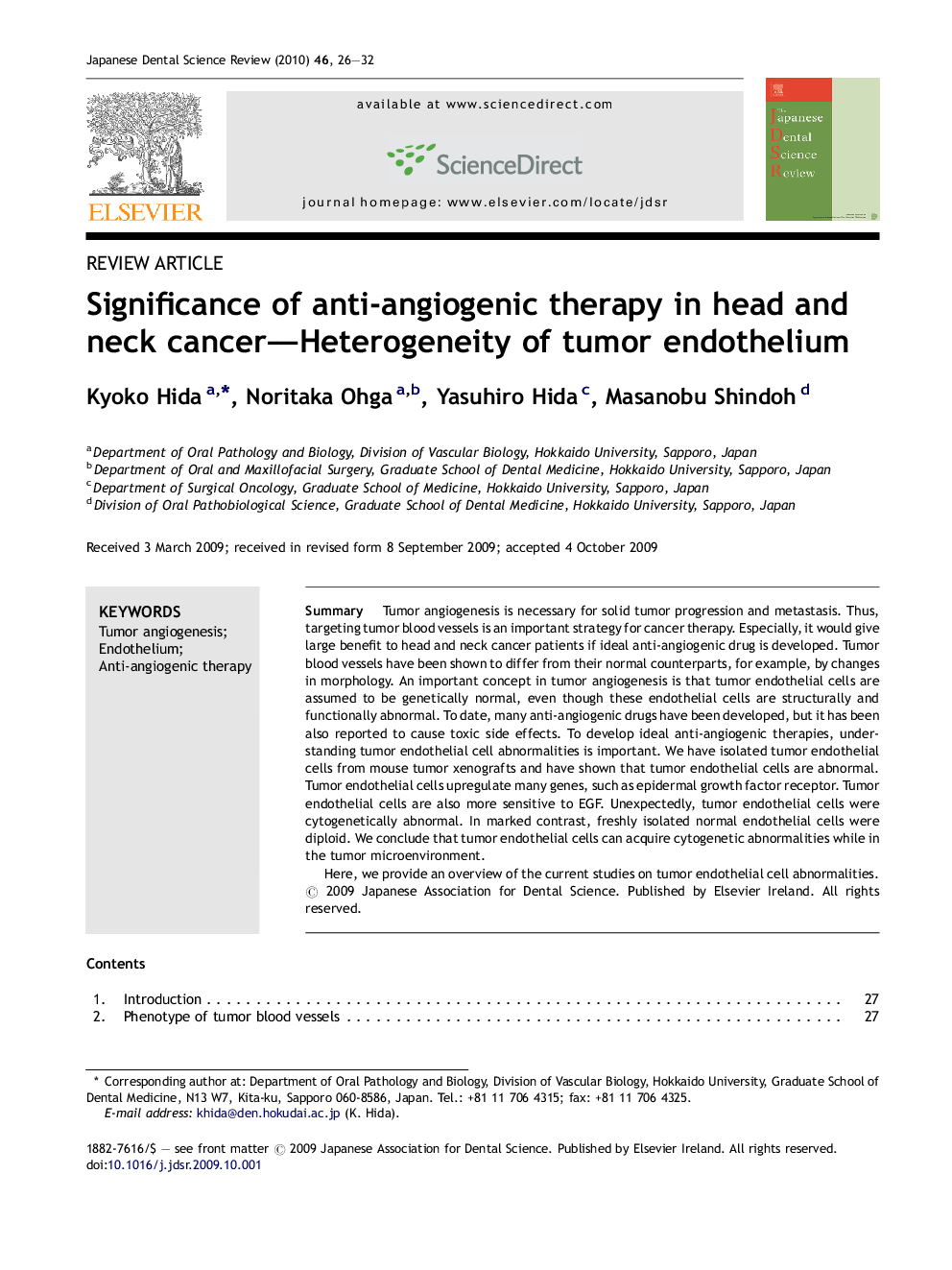| Article ID | Journal | Published Year | Pages | File Type |
|---|---|---|---|---|
| 3136498 | Japanese Dental Science Review | 2010 | 7 Pages |
SummaryTumor angiogenesis is necessary for solid tumor progression and metastasis. Thus, targeting tumor blood vessels is an important strategy for cancer therapy. Especially, it would give large benefit to head and neck cancer patients if ideal anti-angiogenic drug is developed. Tumor blood vessels have been shown to differ from their normal counterparts, for example, by changes in morphology. An important concept in tumor angiogenesis is that tumor endothelial cells are assumed to be genetically normal, even though these endothelial cells are structurally and functionally abnormal. To date, many anti-angiogenic drugs have been developed, but it has been also reported to cause toxic side effects. To develop ideal anti-angiogenic therapies, understanding tumor endothelial cell abnormalities is important. We have isolated tumor endothelial cells from mouse tumor xenografts and have shown that tumor endothelial cells are abnormal. Tumor endothelial cells upregulate many genes, such as epidermal growth factor receptor. Tumor endothelial cells are also more sensitive to EGF. Unexpectedly, tumor endothelial cells were cytogenetically abnormal. In marked contrast, freshly isolated normal endothelial cells were diploid. We conclude that tumor endothelial cells can acquire cytogenetic abnormalities while in the tumor microenvironment.Here, we provide an overview of the current studies on tumor endothelial cell abnormalities.
